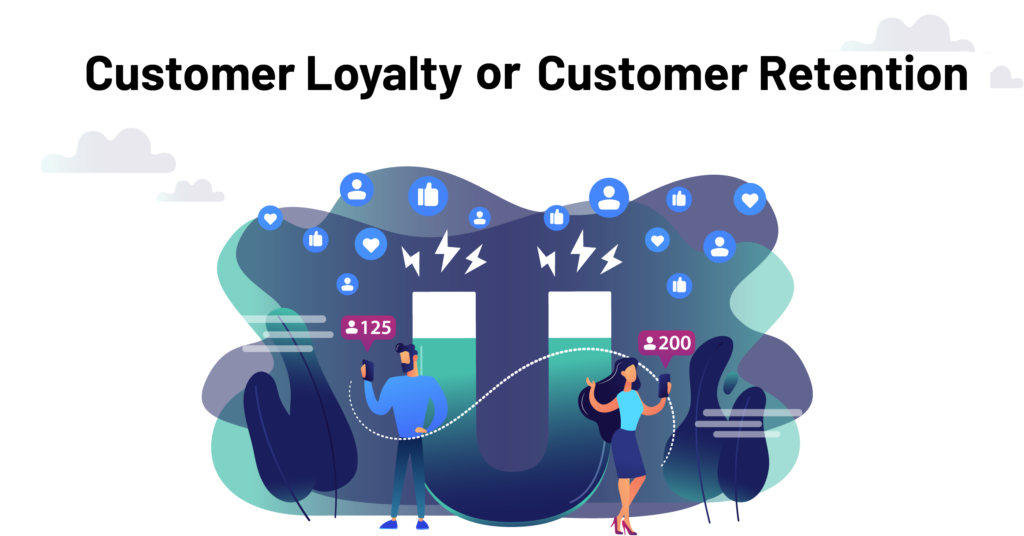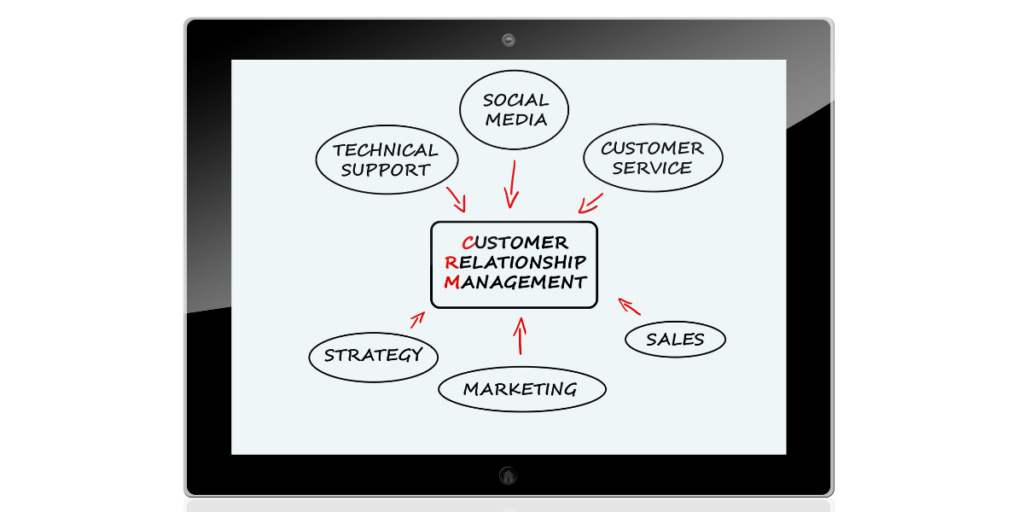
Maintaining meaningful customer relationships has become paramount for business success in today’s dynamic business landscape, where customer expectations continually evolve. CRM systems are the backbone of modern marketing strategies, helping teams nurture leads, engage customers, and drive revenue growth. In this guide, we’ll delve into how marketing teams can harness the power of CRM to enhance their efforts and deliver exceptional customer experiences.

CRM stands for Customer Relationship Management. It encompasses businesses’ technology and strategies to manage customer interactions and relationships. CRM solutions are designed to streamline processes, improve communication, and provide insights that enable more personalized engagement.

Marketing teams often face challenges in understanding customer needs, tailoring campaigns, and delivering consistent messaging. CRM centralizes customer data, providing insights into preferences and interactions for marketing teams. This data-driven approach empowers marketers to create targeted, relevant, and impactful campaigns that resonate with customers. CRM empowers marketing teams to deliver tailored campaigns by leveraging customer data. This data-rich approach allows marketers to understand individual preferences, behaviors, and purchase history, enabling them to create content that resonates deeply with customers. By offering a comprehensive 360-degree view of each customer’s journey, CRM ensures that marketing strategies are finely tuned to align with customer needs and behaviors, leading to more relevant and impactful campaigns.
According to Corey Patterson’s article ” What is customer relationship management (CRM) and how does it support marketing? ” CRM focuses on streamlining interactions between sales, marketing, and service teams. CRM is extensive, including improved information organization, automated data entry, customer segmentation, process scaling, prospect follow-up reminders, and enhanced reporting.


A fundamental advantage of using CRM for marketing is the ability to create a comprehensive view of each customer. CRM systems consolidate customer data from various touchpoints, such as email, social media, website interactions, and purchase history. This holistic perspective allows marketers to understand individual preferences, behavior patterns, and pain points, enabling them to tailor campaigns that resonate on a personal level.

Segmentation lies at the core of effective marketing, and CRM systems excel at facilitating this process. Marketers can create highly targeted campaigns by categorizing customers based on demographics, purchase history, interests, and other factors. This increases engagement rates and the likelihood of conversions.

Personalization has become a non-negotiable aspect of modern marketing. CRM systems enable marketers to send customers personalized messages, recommendations, and offers at the right time. Automated workflows can trigger emails based on user behavior, ensuring customers receive content that aligns with their preferences and needs.

For marketing teams, lead generation and nurturing are pivotal processes. CRM systems streamline lead capture and track progress through the sales funnel. Automated scoring identifies high-potential leads, prioritizing marketing efforts for conversion.
Gone are the days of relying solely on gut feeling to evaluate the success of marketing campaigns. CRM systems provide advanced analytics and reporting capabilities that offer insights into campaign performance. Marketers can track key metrics like open, click-through, and conversion rates. These insights allow for data-driven decision-making and refining strategies over time.
In many organizations, marketing and sales departments operate independently. CRM systems bridge this gap by providing a shared platform where both teams can access real-time data on customer interactions. This alignment ensures a seamless transition of leads from marketing to sales, enhancing the overall customer experience and shortening the sales cycle.

Acquiring new customers is vital, but retaining existing ones is equally crucial. CRM systems enable marketing teams to monitor customer engagement and satisfaction levels. By identifying trends and patterns, marketers can proactively address issues, provide personalized offers, and maintain a consistent line of communication, fostering loyalty and reducing churn.

Social media is an indispensable component of contemporary marketing tactics. Many CRM systems integrate with social media platforms, allowing marketers to track customer interactions, monitor sentiment, and engage with customers directly. This integration provides valuable insights into customer perceptions and allows for timely responses to inquiries or feedback.
Upsurge CRM provides tools to track the performance of marketing campaigns. Marketing teams can measure key metrics, analyze campaign effectiveness, and make data-driven adjustments to optimize future campaigns. Upsurge fosters collaboration between marketing, sales, and customer support teams. Shared access to customer data ensures consistent communication and a seamless customer experience across departments. Our systems offer valuable insights into customer behaviors, preferences, and engagement patterns. Marketing teams can use this data to refine strategies, develop targeted campaigns, and improve customer experiences.

Contact and Lead Management CRM systems offer robust contact and lead management capabilities. Marketing teams can organize, categorize, and track leads from various sources. Lead scoring prioritizes leads based on the likelihood to convert, allocating resources effectively for high-potential nurturing.
Email Marketing and Automation Integration between CRM and email marketing platforms streamline email campaigns. Marketing automation tools enable teams to send personalized, timely messages triggered by customer actions. This automated approach ensures consistent communication while reducing manual effort.
Campaign Tracking and Analytics CRM systems provide advanced analytics tools that track the performance of marketing campaigns. Marketers can monitor metrics like open, click-through, and conversion rates. This data-driven approach allows for real-time adjustments and optimization of campaigns.

Implementing a Customer Relationship Management (CRM) system within your marketing team can revolutionize your customer engagement and business growth approach. The journey toward effective CRM integration begins with carefully selecting the right CRM solution. Consider your team’s specific needs, growth trajectory, and the seamless integration of the chosen CRM with your existing tools and workflows. This initial decision sets the tone for the entire implementation process. Maintaining the integrity of your data is a critical aspect of successful CRM usage. Before implementation, conduct a thorough data audit to cleanse and organize your existing information. Establish clear data entry protocols and validation rules to ensure the accuracy and reliability of the data you collect moving forward. A clean CRM database forms the foundation for informed decision-making and targeted marketing campaigns.
According to Nicola Fairhead’s article ” Why marketing teams need customer relationship management (CRM), ” CRM systems, by gathering, analyzing, and linking customer data, create comprehensive customer profiles that enable both sales and marketing teams to understand customer needs and preferences better.

User training and adoption are critical drivers of CRM success. Equip your marketing team with comprehensive training that covers the CRM’s features, benefits, and practical applications. Fostering a culture of curiosity and learning around the CRM system can lead to enthusiastic user adoption and creative problem-solving. Showcase how the CRM empowers your team to understand customer behavior, tailor strategies, and foster deeper connections. The CRM can be a hub for shared customer insights, enabling your marketing, sales, and customer support teams to align their efforts and deliver consistent, personalized customer experiences. Setting realistic goals and expectations is crucial. Define measurable objectives that align with your marketing strategy, such as improved lead generation, enhanced customer engagement, or streamlined campaign tracking. Regularly assess your progress and adapt your strategy based on the insights generated from the CRM.
UpsurgeCRM systems streamline repetitive tasks like email marketing, lead nurturing, and follow-up communications with marketing automation features. This enhances efficiency and ensures consistent messaging while saving time. Our system helps marketing teams track and manage leads throughout the customer journey. Automated lead scoring helps identify high-potential leads, enabling marketing teams to prioritize their efforts.
Effective marketing requires a strategic approach in the digital age, with high customer expectations. CRM empowers marketing teams to gather, analyze, and leverage customer data to deliver personalized experiences, drive engagement, and boost revenue. Integrating CRM into marketing strategies can help businesses develop stronger customer relationships and differentiate themselves in a competitive market. So, embark on this journey of enhanced customer engagement and business growth by harnessing the power of CRM for your marketing team. Remember, CRM is not just a technology; it’s a mindset that puts the customer at the center of every marketing effort. With the help of this guide, your marketing team can use CRM to its full potential, creating campaigns that connect with your target audience, leading to satisfied customers and business success.
What is CRM, and why is it important for marketing teams?
Customer Relationship Management (CRM) is a blend of technology and a strategic approach that assists businesses to handle their customer interactions effectively. It’s crucial for marketing teams because it centralizes customer data, enabling personalized campaigns that drive engagement and revenue growth.
How does CRM integration enhance marketing strategies?
CRM integration provides a 360-degree view of customer interactions, allowing marketing teams to segment audiences, deliver personalized content, and optimize campaigns for better engagement and conversion rates.
What tools does CRM offer for marketing teams?
CRM tools for marketing include contact and lead management, email marketing automation, and campaign tracking. These tools streamline communication, automate tasks, and provide insights for data-driven decision-making.
How does CRM improve collaboration between departments?
CRM breaks down silos by giving sales, marketing, and customer support teams shared access to customer data. This collaboration ensures consistent messaging and enables cross-functional teams to deliver seamless customer experiences.
Can CRM handle personalized marketing at scale?
Yes, CRM facilitates customized marketing at scale by leveraging customer data to deliver tailored content, offers, and recommendations, leading to more meaningful interactions and increased customer loyalty.
How does CRM contribute to campaign optimization?
CRM provides campaign tracking and analytics, offering real-time insights into campaign performance metrics. This data allows marketing teams to make informed adjustments for optimal campaign results.

The Real Benefits of Contact Management with CRM for Collecting Customer Data Managing and leveraging customer information has become a foundational aspect of success…
Can a CRM Really Automate My Sales Follow-Ups and Boost My Small Business Revenue? Small businesses face increasing pressure to maintain consistent communication with…
Best CRM Software for Sales Prospecting: Transform Your Sales Prospecting Struggling to turn cold leads into paying customers? You’re not alone. In today’s competitive…